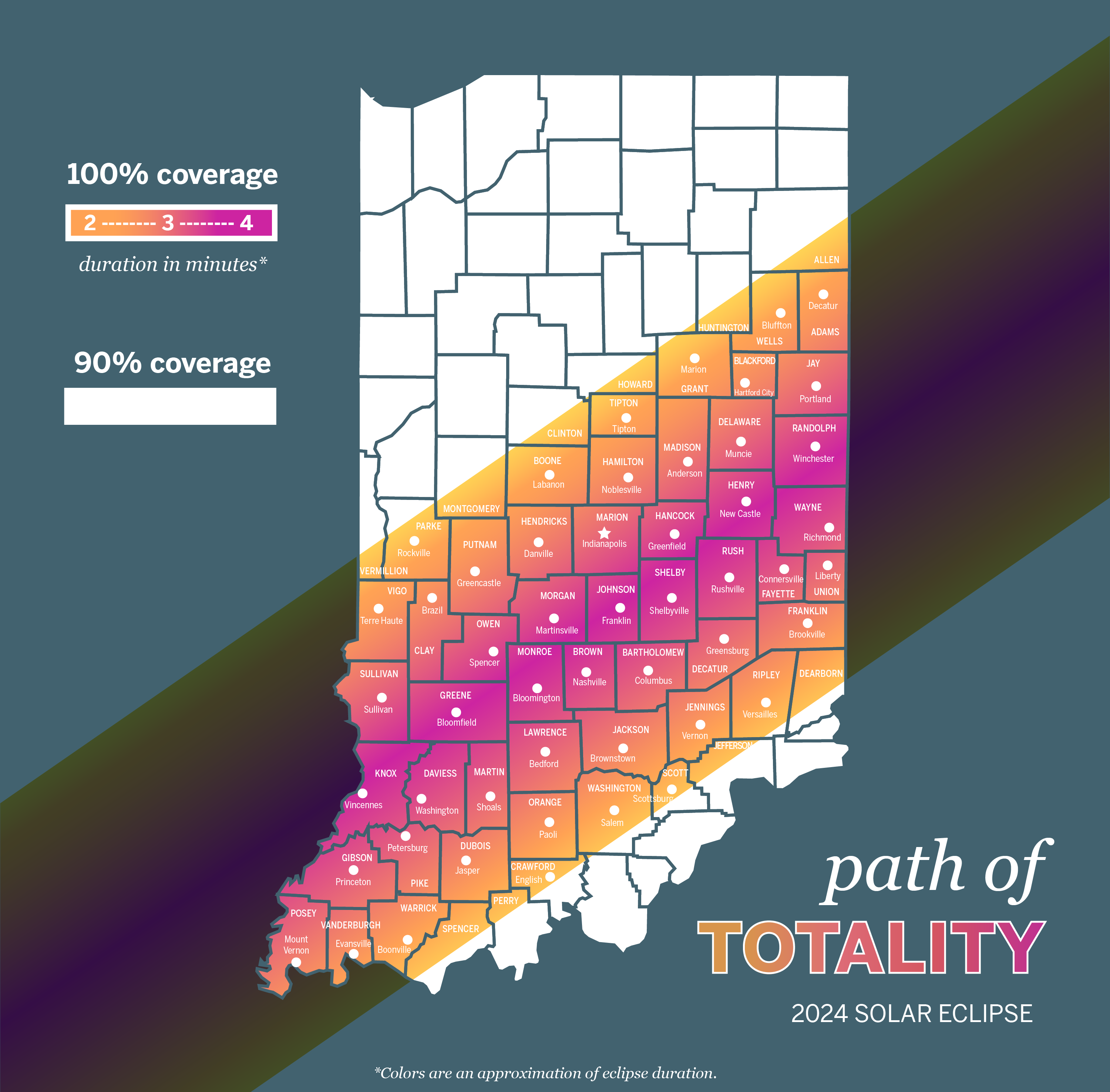Communities across southern Indiana aligned directly with the path of totality during the 2024 solar eclipse. This provided a unique opportunity for Hoosiers and tourists alike to explore the cultural dimensions and creative inspiration of a solar event that will remain in our memories for a lifetime.
With funding support from the Simons Foundation as part of its In the Path of Totality initiative, the Indiana University Center for Rural Engagement lead IU’s rural solar eclipse initiative, providing staff support, resources, and outreach for community activities that united residents around the historic astronomical event.




